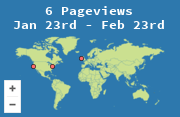South African President Jacob Zuma, placed education and skills development at the centre of the South African government’s policies in his State of the Nation Address on 11 February 2010. He announced a number of key activities that will be undertaken to achieve this.
In the government’s 2010 programme, it wants to improve the ability of children to read, write and count in the foundation years.
The government wants learners and teachers to be in school, in class, on time, learning and teaching for seven hours a day. Teachers will be assisted by providing detailed daily lesson plans. Students will be provided with easy-to-use workbooks in all 11 languages.
Zuma also announced that from this year onwards, all grade 3, 6 and 9 students will write literacy and numeracy tests that are independently moderated. The aim is to increase the pass rate for these tests from the current average of between 35 and 40% to at least 60% by 2014. Results will be sent to parents to track progress.
In addition, each of the country’s 27 000 schools will be assessed by officials from the Department of Basic Education. This will be recorded in an auditable written report.
The government aims to increase the number of matric students who are eligible for university admission to 175 000 a year by 2014, he continued.
He urged parents to cooperate with the government in making this a success. He also welcomed last month’s statement by the three teacher unions, NAPTOSA, SADTU and SAOU, reaffirming their commitment to the Quality Learning and Teaching Campaign from the beginning of 2010.
Zuma further stressed the need to invest in the youth to ensure a skilled and capable workforce to support growth and job creation. He then announced a plan to increase the training of 16-25 year olds in further education and training facilities to provide a second chance at education, for those who do not qualify for university.
The government is working with higher education institutions to ensure that eligible students obtain financial assistance, through the National Student Financial Aid Scheme, he said.
He also announced that the government has set ambitious targets for skills development, to produce additional engineers and technicians, and to increase the number of qualified mathematics and science teachers.
Zuma also stressed that the number of youth who enter learnerships in the private and public sectors, should be increased.
To read the full State of the Nation Address on IOL Click Here!
Filed under: Edu News (South Africa), Further Education and Training, Higher Education, matrics, State of the Nation Address, Teachers/Educators, universities | Tagged: assessment of schools, Department of Basic Education, Education, engineers, financial assistance, Further Education and Training Colleges, increase, Jacob Zuma, learners, learnerships, lesson plans, literacy, mathematics teachers, matrics, National Student Financial Aid Scheme, numeracy, pass rate, President, read, school, science teachers, skills development, South Africa, State of the Nation Address 2010, students, teachers, technicians, tests, university admission, workbooks, write | Comments Off on President Jacob Zuma places education and skills development at the centre of the South African government’s policies








